
*Editors’ Note:
We felt lucky to receive this letter from Sarah Garton Stanley a week ago. We hope you will agree it makes some salient points about lists and the quantification and qualification of culture into singular lists. It also had us thinking about the anti-ness of this site. If this becomes a definitive space for singular (read: institutional) truth, then it probably isn’t the alternative status-quo challenging place it once was when it began by asking various artists “What the fuck is going on?”
So embedded in this letter is a call to action: For each of us to make our own lists. To create our own personal understandings of theatre history and to allow this multiplicity of expression and perspective to inform our understanding of where this art form has been so far. We think this is a worthy objective in 2013, when each of us has access to self-publishing tools and the opportunity to communicate our own values, experience and reality.
ar & mw
Dear Jordan and Praxis,
Everybody knows that it is not THE list, right? That it is just A list. Right? I mean everybody knows a play is still worthy if it is not nominated for an award. I mean we all KNOW this, right?
I was running the other morning and feeling blissed out on eve-ish of my 50th birthday, that I still can. And bliss led to a great opening of “thinking space”, and the unlocking of something that had been eating at me since the first publishing of Jordan’s list, but this gentle “eating at me” sensation had – my bliss was telling me – begun to transform into a background kind of rage. What was going on? I realized that it was as a result of watching the slow motion shift from Jordan’s awesome list into a largely un-authored list that now sits authoritatively on the Praxis Website. (The pun was not intended but I need to let it stand as the irony is worth considering.)
Initially I was super-charmed by Jordan’s list. Then I was saddened that more of my work was not represented on the list. (After all I won the drama prize in high school, so where is my prize here?) I tried to respond on Twitter because I really felt – personal ouches aside -that I wanted to see DNA’s The Last Supper on that list. My suggestion didn’t– as far as I know – get picked up on the social media trawling nets so I will restate it here[1]. This play, DNA’s The Last Supper, was a stunning piece of art and meditation, and it spoke to the angst of a generation, and the loss that comes with it. Watching it made me feel as though I had been in the space of a tremendous spirit. And actually I was, as not only was there an abundance of regular genius in this piece, there was also the last breaths of Ken MacDougall being shared with a community. So I am writing this letter to you because you are people that I admire, and I want you to know about this terrific show.
But also, I was aware as to my feelings of jealousy. Why? Because by making this initial generous list, stating your sense of what’s important, and watching your capacity to put your great ideas into action are truly exciting. So of course, this makes me jealous! And jealousy leads to action. Covertly like Iago, or with gusto and embarrassment as I am endeavouring to display here. But jealousy also pours the foundations of a very deep arts crush. I am a fan of your writing, I love the energy you have given to an arts movement in the Toronto, with Videofag, amid other pursuits, and you seem completely generous and charming. All great relationships operate on a bit of jealousy. So…I hope you will forgive mine.
Because truth be told, I thought the act of your list was genius generous. My mum passed away a little over a year ago from alzheimer’s dementia. In her final months she lit up like the Las Vegas Strip when I walked into the room, but she did not know my name. My sense of her love for me was assured but I could not rely on her “remembering” me in a substantive sense of the word memory. I think it is why, throughout history, we humans have gasped for breath when we realize “shit! The past is slipping” Shit! Get it down.
I just completed my MA in Cultural Studies at Queen’s University. I was interested in failure, and how it finds its way into performance creation. I ruminated on how failure impacts a collective sense of time, and whether or not it can be parsed as an active ingredient into a creation tool kit. While studying I came to understand the importance of historiography. I came to see that there are concurrent histories being written but that it is – ultimately – power that decides what “history” will look like in the future. And it is because of this –finally – that I felt the need to respond, and, thanks to a great Sunday morning run, found the keys to unlock the “how to” do and the “why”.
My initial response to the first action of you publishing/sharing your anti-canon went like this: “Oh Wow. Cool. Where is this play? Hunh! I wonder how many of these he has seen? Really? Oh! I had forgotten about that one. Cool, (again), Jordan is brilliant. I am so jealous”
This more considered response comes as a result of the migration of the list to the Praxis Website. Not only is the list now called the Anti Canon List and referred to across media platforms as such, but the mechanics (such an old school term in light of Social Media platforms)[2] are now in place to send countless iterations of something that started as A list (Jordan Tanahill’s list) and is now becoming THE list (published by Praxis). And I wonder what might happen if we (the great unpublished would-be list makers), followed you into this list making madness, and made our own lists. Maybe I am just using all these words to give myself permission to do just this. To not feel oppressed by the choices that are being made outside of my choosing.
Don’t get me wrong, I was really happy to see the initial list but I am also interested in who is responsible for the additions. I am interested in the additions too, but it is the opinions that get them on the list. And those opinions get lost when the list gets quoted, and referred to. When history chooses. Perhaps this period in history could be seen, then, as a group of lists, as a period where author takes precedence over authoritative. Seems like a worthy goal.
When one of my earliest theatre companies took flight, I wrote an article in the CTR. It was about the production of Romeo and Juliet that we did underneath the Bathurst Street Bridge. The article was called “Permission Granted”. I recently encountered the article and was touched by its innocence. And yet, I was already a few years older than you are now Jordan. But I see now, again, that permission remains central to all of our efforts and work as artists. We must constantly give ourselves permission. No one else will. Jordan you have reminded me of this. I am so grateful.
So on my list, Sarah Garton Stanley’s list, I include and acknowledge the great list that Jordan Tanahill initially made and now offer these additions as my own:
This makes my list incomplete. Things I loved not mentioned because Jordan’s list already did. Or things I loved too much not to leave on a second time. Really my list stands as an honest attempt to respond to Jordan’s proposition of the anti-canonical idea. I take this to mean “the off mainstream rememberings” of Canadian Theatre History. But I also think it has something to do with things we have loved and lost. I will keep thinking of new plays to add to my list and will use the “competitiveness of performance creation” that LeCoq taught so brilliantly, to see how my list can grow, based on what gets missed elsewhere.
So my proposal is this; keep it as your list Jordan. And Praxis, see if you can house the many lists of individuals. It is, ultimately, an impossible project. But it would be nice to slow the move to gospel, to take some time hearing from as many peoples as possible, and so I am also challenging everybody who is interested, to make their own list, and to get it out there. And Praxis and Jordan, I am hoping you will consider renaming the list on the Praxis Website with the addition of Jordan’s name. So that all of the people who feel left out, and who are not emboldened enough (for all kinds of good reasons) to add their loves to the pile, will know that it is not THE list but just A list.
I have an arts crush on Jordan. And with this crush I have chosen to follow his lead.
There is a wonderful Ted Talks about leadership. It is called How to Start a Movement and the speaker is Derek Sivers:
I recommend you give it a watch as it has bearing on my writing this response.
Sincerely,
Sarah Garton Stanley
PS: In high school we were allowed to vote for ourselves for the drama prize. I did. And I have always wondered if I would have won had I not. I will never know.
[1] Jordan recently pointed out that he had responded to this. I missed this progression.
[2] See how smart Walter Benjamin was? Still relevant -if only in an iterative sense – after all these years.
*If you’d like to add to the list of anti canon lists, post your contribution on facebook using the hashtag #MyCanon
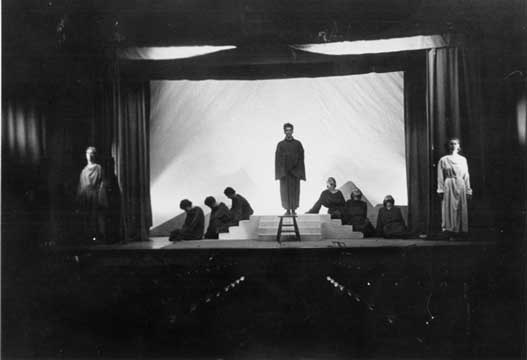
Herman Voaden’s Rocks
by Jordan Tannahill
Below is a Facebook note I wrote several days ago on the ways in which we remember and assign value to plays in Canada. In the note I suggest an ‘anti-cannon’ of 100 performance works not easily captured on the page.
The list tends to favor my region and era of exposure. As such, I encouraged commentators to contribute their own suggestions. So far the response has been enthusiastic, but almost entirely Toronto-centric. My hope is this blog post will help extend the reach and dialogue to others across the country who might be interested in a crowdsourced Canadian ‘anti-cannon’.
A few days ago I was honoured with first place in the Herman Voaden Playwriting Competition for my play Late Company. While I believe the award serves the important function of supporting the writing of new dramatic text in our country, it also provided me the opportunity to reflect and question the ways in which we assign value to plays.
Herman Voaden was, himself, an early pioneer of experimental theatre in English Canada. His works of ‘symphonic expressionism’ were some of the first and most ambitious multidisciplinary performances in our contemporary theatre, in which sound, light, choreography, choral work, and even early forms of multimedia projection were given equal weight and importance as the text. Many of Voaden’s published texts are arguably shadows of the performances they attempt to capture – not ‘well made plays’ by any stretch of our contemporary definition. It is ironic to consider Voaden himself may never have won his namesake award.
This spurred me to consider which plays in our country are canonized. It is perhaps only natural that the plays that exist most effectively and wholly as published texts are the ones that find their way most often into textbooks, university reading lists, lectures, and ‘Best Canadian Play’ lists. This past week I decided to sit down and consider which works of Canadian theatre and performance have been neglected or overlooked from the canon, based on (among other things no doubt) the difficulty of conveying their totality on the page.
Below this note are 100 suggestions for an ‘anti-canon’ of English Canadian theatre. An additional 30 titles have been listed for French Canadian theatre, shorter due to my lack of knowledge and exposure to it. I hope my colleagues in Quebec will help add to it. These are pieces that are historically and artistically resonant not because of their dramatic texts but for the total live event they presented. It is, by nature of the impossibility of the task, a woefully incomplete list. Many of these performances occurred before I was born. Many I never saw. But their impact, what is passed down through documentation, oral tradition, and the influence felt/seen in the work of subsequent generations of artists, has informed my selection. I acknowledge that this list is completely informed by my own biases and knowledge (and lack thereof) – it does not intend to present a complete narrative but rather a jumping off point for further conversation. It is something to be debated and added to. Hopefully there may be some interest among my friends and peers to do so.
PLEASE NOTE: After input from contributors across Canada, particularly those from Quebec, I chose to separate English and French Canadian works to recognize their distinct linguistic and cultural traditions. Also, I have included two small ancillary lists (performance art/interventions and theatre for young audiences) for further inclusivity and points of discussion.
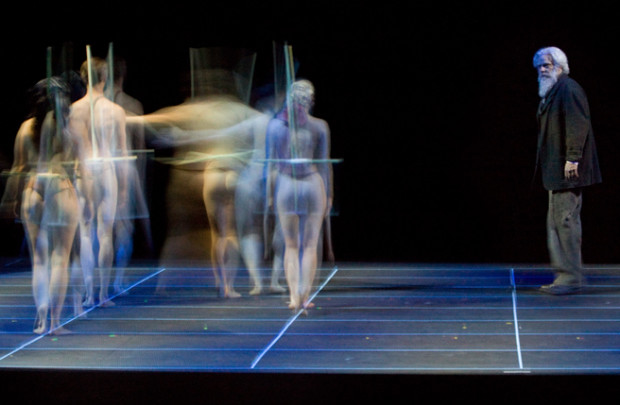
Electric Company
ENGLISH CANADA
2boys.TV
Phobophilia (2007)
2b Theatre (Christian Barry, Steven McCarthy, Michelle Monteith)
Revisited (2005)
Alianak, Hrant
Lucky Strike (1978)
Alton (Kate), Manson (Ross)
The Four Horseman Project (2007)
Aluna Theatre
Nohayquiensepa (2011)
Anna Project, The (Suzanne Odette Khuri, Ann-Marie MacDonald, Banuta Rubess, Maureen White)
The Is For You, Anna (1985)
Arden (Leslie), Cascio (Anna Theresa)
The House of Martin Guerre (1993)
Arsenault, Nina
The Silicone Diaries (2009)
Atkins, Damien
Real Live Girl! (2003)
Augusta Company, The
86: An Autopsy (1995)
Barrow, Daniel
Every Time I See Your Picture I Cry (2008)
Bettis, Paul
The Rule Plays (1970-80s)
Bluemouth Inc.
Something About a River (2004)
Boca Del Lupo
My Dad, My Dog (2008)
Brassard, Marie
Jimmy (2001)
Brebner, Morwyn
Music for Contortionist (2000)
Brooker, Blake / One Yellow Rabbit
The Land The Animals (1991)
Brooker (Blake) with Martini (Clem), Miles (Clem) / One Yellow Rabbit
Ilsa Queen of the Nazi Love Camp (1987)
Brooks (Daniel), Verdecchia (Guillermo)
The Noam Chompsky Lectures (1990)
Burkett, Ronnie
The Memory Dress Trilogy (1994 – 2000)
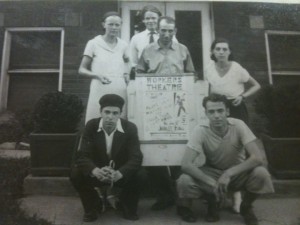
Core members of The Workers Theatre
Canadian Workers’ Theatre (Oscar Ryan, E. Cecil-Smith, Frank Love, Eugenia Watts and Mildred Goldberg)
Eight Men Speak (1933)
Catalyst Theatre
Nevermore (2008)
Chafe, Robert
Under Wraps (1997)
Afterimage (2009)
Clarke (George Elliott), Rolfe (James)
Beatrice Chancy (1999)
Clements, Marie
Burning Vision (2003)
CODCO
Cod on a Stick (1973)
Company of Sirens
The Working People’s Picture Show (1985)
Debajehmujig Theatre Group
The Best Medicine Show (1996)
Die-Nasty Troupe
Die-Nasty (1991 – present)
Druick, Don
Where is Kabuki? (1991)
Dyba, Kenneth
Lily, Alta (1986)
Earle, Chris
Radio: 30 (1999)
Electric Company, The (Kim Collier, Jonathon Young, Kevin Kerr, and David Hudgins)
Brilliant! The Blinding Enlightenment of Nikola Tesla (1996)
Tear The Curtain! (2011)
emergency exit
trilogie (2005)
Froelich, Peter
Simpl (2003)
Gall (Brendan), McPhaden (Mike), Roberts (Rick), Tepperman (Julie)
The Gladstone Variations (2007)
Garnham, Ken
Beuys Buoys Boys (1989)
Gilbert, Sky
Drag Queens on Trial: a courtroom melodrama (1994)
Gilmour (Dean), Smith (Michelle)
Chekov’s shorts (1999)
Gorlin (Wendy) and Panych (Morris)
The Overcoat (1998)
Griffiths, Linda (with Maria Campbell and Paul Thompson)
Jessica (1986)
Gray, John
18 Wheels (1976)
Hines, Karen
The Pochy Plays (2004)
Hinton, Peter
The Swanne (2002-2004)
Hollingsworth, Michael
Clear Light (1973)
The History of the Village of the Small Huts (1982-2012)
Hummer Sisters, The (Janet Burke, Jennifer Dean, Deanne Taylor)
Hummer for Mayor: Art vs. Art (1982)
Jain (Asha), Jain (Ravi)
Brimful of Asha (2011)
Kane, Margo
Moonlodge (1990)
Keilly, Jillian
The Cheat (1996)
Krizanc, John
Tamara (1981)
Ledoux (Paul), Young (David)
Fire (1999)
Liitoja, Hillar
The Last Supper (1993)
Poundemonium (1993)
Luscombe, George / Toronto Workshop Productions
Hey, Rube! (1961)
mandiela, ahdri zhina
dark diaspora… in dub (1991)
McCurley, Jon & Friends
Double Double Land Land (2009)
Mercer, Rick
Charles Lynch Must Die (1990)
Miller, Rick
Bigger Than Jesus (2003)
Mills, Sonja
Dyke City (1994)
Moore, Mavor
Spring Thaw (1948)
Mummer’s Troupe
They Club Seals, Don’t They? (1978)
Mump and Snoot
Flux (2003)
Newton, Alistair
The Pastor Phelps Project (2008)
Nightwood Theatre
The True Story of Ida Johnson (1979)
O’Donnell, Darren
Pppeeeaaaccceee (2003)
Haircuts by Children (2006 – present)
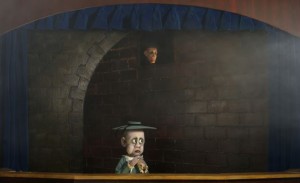
Famous Puppet Death Scenes
Old Trout Puppet Workshop
Famous Puppet Death Scenes (2006)
One Reed Theatre
Nor the Cavaliers Who Come With Us (2006)
Ouchi, Mieko
The Red Priest (Eight Ways to Say Goodbye) (2003)
Parsa (Soheil), Quirt (Brian)
Aurash (1998)
PME-ART (Caroline Dubois, Claudia Fancello, Jacob Wren)
Families Are Formed Through Copulation / La famille se crée en corpulant (2005)
Platform 9 Theatre Collective
White Trash, Blue Eyes (1989)
Primus Theatre
Alkoremmi (1991)
The Night Room (1993)
Radix Theatre
Instruments of Torture (1994)
Reaney, James
Colours in the Dark (1969)
Salutin, Rick (with Theatre Passe Muraille)
1837: The Farmer’s Revolt (1976)
Schafer, R Murray
Patria (1966-1990)
Sears, Djanet
Afrika Solo (1987)
Seremba, George
Come Good Rain (1994)
Small Wooden Shoe
Dedicated to the Revolutions (2009)
STO Union – Ross (Nadia), Wren (Jacob), Wright (Tracy)
Revolutions in Therapy (2004)
STO Union – Cave (Diane) and Ross (Nadia)
The Alistair Trilogy (1995)
Tepperman, Julie
Yichud (2010)
Theatre Columbus
Fertility (1987)
Theatre Junction
On the Side of the Road (2009)
Theatre Replacement
Clark and I Somewhere in Connecticut (with Theatre Rumble) (2007)
The Chop – Itai Erdal in collaboration with James Long, Emelia Symington Fedy & Anita Rochon
How To Disappear Completely (2011)
Thompson, Judith
Enoch Arden in the Hope Shelter (2006)
Thompson, Paul and collective
The Farm Show (1972)
I Love you Baby Blue (1974)
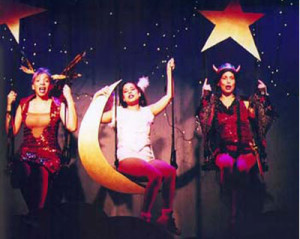
The Turtle Gals – The Scrubbing Project
Turtle Gals, The
The Scrubbing Project (2002)
Tunooniq Theatre
Changes and In Search of a Friend (1986)
Verdecchia, Guillermo
Fronteras Americanas (1993)
Voaden, Herman
Hill-Land (1934)
Walker, George F.
Rumours of Our Death (1980)
Williams, Alan
The Cockroach Trilogy (1980)
young.anitafrika, d’bi
the sankofa trilogy (2005-2010)
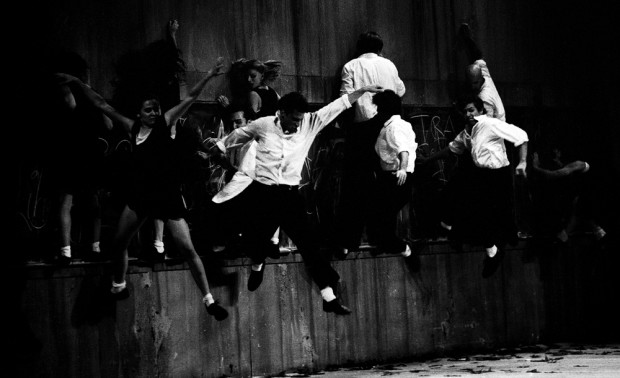
Carbone 14’s Le Dortoir
FRENCH CANADA
Archambault, Francois
15 secondes (1997)
Barbeau, Jean
Ben-Ur (1971)
Blackburn (Marthe),(Marie-Claire), Brossard (Nicole), Gagnon (Odette), Pelletier (Pol), Théoret (France)
La Nef des sorcieres (1976)
Carbone 14
Le Dortoir (1988)
Caron (Jean-Francois), Champagne (Dominic), Messier (Jean-Frédéric), Rafie (Pascale)
Cabaret neiges noires (1992)
Champagne, Dominic
La Répétition (1990)
Choiniere, Olivier
Le Bain des Raines (1998)
Dalpé (Jean-Marc) and Haentjens (Brigitte)
Nickel (1983)
Danis, Daniel
Cendres de cailloux (1992)
Dupré (Louise) and Haentjens (Brigitte)
Tout comme elle (2006)
Garneau, Michel
Héliotropes (1993)
Gauvreau, Claude
Les Entrailles (1940s)
Germain, Jean-Claude
Les enfants de Chénier dans un autre grand spectacle d’adieu (with Le Théâtre de Même Nom) (1969)
Gratien, Gelinas
Les Fridolinades (1938 to 1946)
Laberge, Marie
Pierre, ou la Consolation (1992)
Lamarche, Gustave
Notre-Dame-des-Neiges (1942)
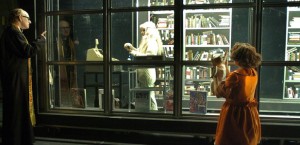
Robert Lepage’s Lipsynch
Lepage, Robert
La Trilogie des Dragons (1985-86)
Les Sept Branches de la Rivière Ota (1996)
Le Project Anderson (2005)
Lipsynch (2008)
Brassard (Marie), Lepage (Robert)
Le Polygraphe (1988)
Le Théâtre Euh!
A bas le plan Trudeau! (1978)
Le Show des femmes de Thetford Mines
Si Cendrillon pouvait mourir! (1980)
Monty, Michel
Accidents de parcours (1993)
Théâtre des Cuisines
Nous aurons les enfants que nous voulons (1974)
Théâtre Expérimental des Femmes
A ma mere, a ma mare, a ma mare, a ma voisine (1978)
Théâtre L’Eskabel
Les Troyennes (1999)
Théâtre Sans Fil
Le Grand jeu de nuit (1992)
Pelletier, Pol
Joie, Océan, Or – a trilogy (1992-1997)
Porte Parole
Sante (2003)
ANCILLARY LISTS FOR FURTHER DISCUSSION
Ten seminal works of Canadian performance art/intervention-based performance
Belmore, Rebecca
Vigil (2002)
Campbell (Colin) and Dragu (Margaret)
I Am Already Changing My Mind (1982)
Dempsey (Shawna) and Millan (Lorri)
The Dress Series (1989-1996)
Dobkin, Jess
Fee For Service (2006)
Fletcher (Kenneth) and Wong (Paul)
Bruise (1976)
General Idea
The 1971 Miss General Idea Pageant (1971)
Kantor, Istvan
Blood Campaign (late 1970s – 2000s)
Laing (Jeremy) and Munro (Will)
The Pavilion of Virginia Puff-Paint (2006)
Mars, Tanya
women-and-power series (1984-1990)
Randy & Berenicci
As The World Burns (1977)
And because plays for young audiences seem to be so frequently omitted from these lists, here are ten seminal works for young people arguably driven by elements beyond text
Axis Theatre Company
The Number 14 (1998)
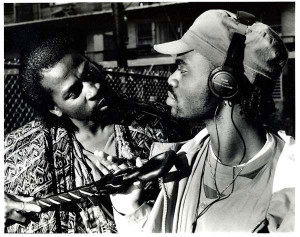
Children of Kush Arising
Black Theatre Workshop
Children of Kush Arising (1994)
Boyle (Shary), Fellows (Christine)
Everything Under the Moon (2012)
Canadian Stage Hour Co.
i.d. (1989)
Craig (David S), Morgan (Robert)
Dib and Dob and the Journey Home (1999)
Ducharme, Hélène
Baobab (2009)
Lebeau, Suzanne (1979)
Une lune entre deux maisons
Massingham, Andy
Rough House (2005)
Northey, Michael P.
Cranked (2012)
Taylor, Drew Hayden
Raven Stole the Sun (2007)
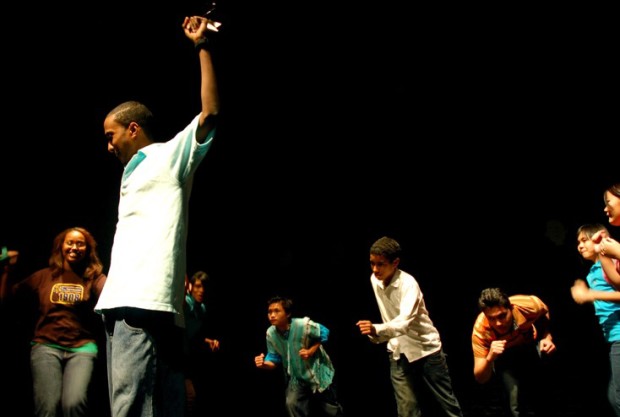
Photo: W. Wolfe-Wylie – Cahoots (Crossing Gibraltar) 2008
by Marjorie Chan
How can theatre be more welcoming to diverse audiences?
This is a question that preoccupies my mind, as I suspect it does for other smart companies looking at the make-up of the streets compared to the people in their seats.
Two days ago, it was revealed over $5 Million per year of federal investment in multiculturalism programming from Citizen and Immigration Canada goes unspent. This funding will now be reduced.
Though disappointing, this doesn’t surprise me in the slightest. When I was Associate Artistic Director of Cahoots, I created a youth program called Crossing Gibraltar, a theatre training and outreach program, tailored especially for refugee and newcomer youth. Over the four years of the program, we ran over a dozen adaptive programs across Toronto, and gave performance training to over 150 newcomer and refugee youth, some as new as 7 weeks in Canada.
In 2008, we went through the enormously bureaucratic and redundant application for funding from Citizen and Immigration Canada.
The program we applied for was not listed anywhere. We had sought out funding, and were directed to a program that was closing but still had funds available. The officer was passionate and eager to see these funds allocated, and excited about our theatre projects. Although the application was unnecessarily dense, we were well motivated, as it offered funding at 2 – 3 times what was available to us from arts councils.
It was easy to see though how community organizations, especially grassroots ones primarily not working in English would’ve struggled, and thus the monies would be unspent. It was a slog, but we persevered. And even though we knew there were funds available, we were thrilled to hear that we were successful for our entire ask!
Then, we read through the requirements in reporting. Then, the multiple pages of requirements in spending. Then, the requirements of the selection of the participants. In the end, Cahoots declined the funds, much to the disappointment of the friendly officer.
The reporting and spending requirements were simply too bureaucratic and not feasible in the day-to-day operations of a program for a small theatre company. Because it would incorporate the Citizen and Immigration Canada logo, all communications with participants had to be vetted prior to beginning of the program, and had to be a certain percentage English or French. (But what about our communications with the parents for our groups that were wholly Burmese and Karen? And who had just arrived the past spring?)
Under the program, we could not offer any honoraria to participants, an integral part of the program’s success in getting buy-in from immigrant parents. In the end, they conceded that $1/day per youth was permitted but only if we eliminated the food budget line. (Occasional Halal pizza and vegetarian samosas were also integral to the buy-in from parents. And with some refugee youth, they were simply not in a place to learn hip-hop or puppetry when they were preoccupied with hunger.)
Lastly, the requirements to select participants was too rigid. They involved checking paperwork, country of birth, last known countries before Canada, confirmed registration in the school system and on and on and on. The process was completely antithetical to the spirit of the program, which was an invitation to participate in the performing arts for newcomers to Canada.
The conditions of the program would have easily kept youth away instead of welcoming them. I don’t know for sure if we ever worked with youth who did not have their paperwork in place. We may have. I don’t know. But I do know every youth we worked with valued the program highly and wanted to be there.
Our programs ran successfully without that funding, finding other opportunities in the councils and in private funding. As we brought the youth closer to theatre, we were also introducing them to Canada. We did so by maintaining the values that I think most Canadians would appreciate: friendship, acceptance, openness. We welcomed them.
Back to the question: How do we welcome more diversity in our audiences? There are many answers, and many ways to address that disparity. (I’m working on it!) But I wonder, I do wonder, do we have any chance of welcoming new Canadians to the theatre, if our country cannot welcome them first?
Happy Canada Day.
Marjorie Chan is the incoming Artistic Director of Cahoots Theatre, a company devoted to creating works that reflect Canada’s diversity in all forms.



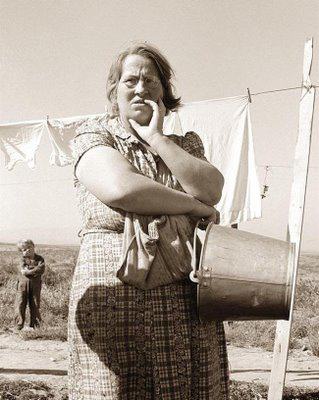
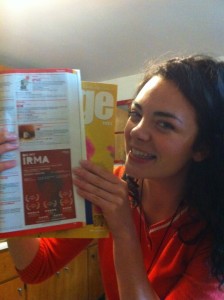
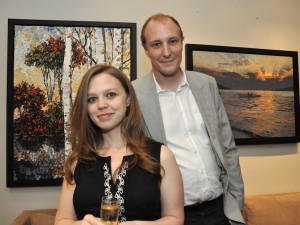

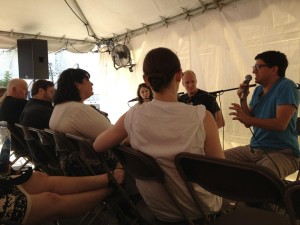
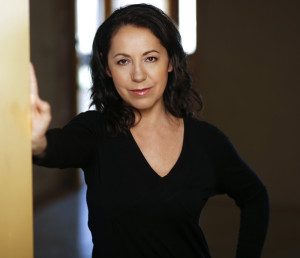











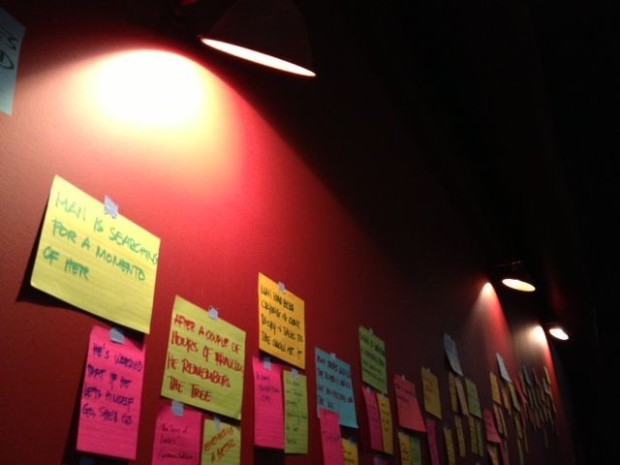
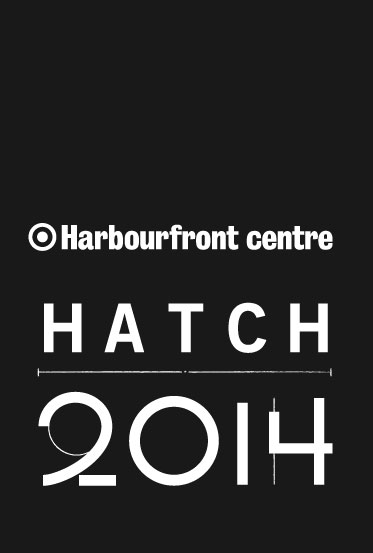

Recent Comments